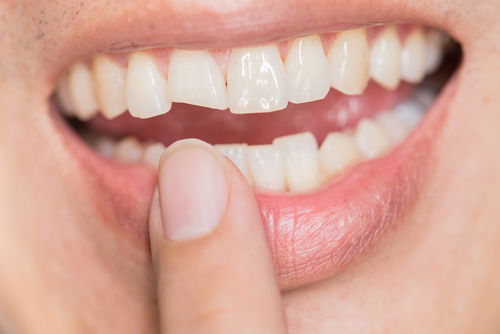We’ve all seen America’s Funniest Videos and laughed out loud when a child hits someone with a plastic bat, the middle of a trampoline caves in, or someone falls off a roof. Yes, it gives us the giggles, but in the back of our minds, we are hoping they didn’t get hurt! Many of those common mishaps can cause dental trauma that can be very scary and painful. Keep reading to know what to do in the seconds and minutes after dental trauma, in case it happens to you or someone you love.
Who is most affected by dental trauma?
Although dental injuries can happen to anyone, they most often happen to children. This is simply because kids participate more frequently in activities that are physical, their reaction time may be slower, and their body coordination is still developing. On a similar note, older adults who have arthritis, balance issues, and weaker bones and muscles can fall more often and experience more dental trauma.
What are the most common activities that lead to tooth injury?
One would think physical sports like football or lacrosse would cause a lot of tooth trauma, but since the head and face are heavily protected, this is not true. Competition can be fierce even during lower contact sports, like soccer, basketball, and martial arts. Even activities like bicycling and swimming are often associated with tooth injury if you fall or swim with your eyes closed.
What to do if baby teeth are affected by trauma?
Luckily, baby teeth are not meant to last forever, so long-term consequences of a tooth injury are not as common. If a small child fractures a baby tooth, it is important to have the area evaluated by a dentist as soon as possible to see if the nerve has been exposed. If baby teeth are bumped, but not broken, first check to see if they have moved within the gums. If the teeth seem to be in the normal position, then they may have just been loosened and will likely tighten up. However, if a baby tooth has been pushed up into the gums, then it could damage the developing permanent tooth underneath. In this case, prompt evaluation by a dentist is imperative.
Soft tissue injuries can occur as well. The gums may bleed, the teeth could have bit into the lip or cheek, or there could be a laceration or cut. All of these must be evaluated to determine the severity of the injury and if treatment, like stitches, are necessary.
Sometimes, a baby tooth that is already loose is bumped and the exfoliation process is just accelerated. A baby tooth that has been lost prematurely most likely will not have any long-term consequences, except that there might be a gap for a while until the permanent tooth moves into position.
In any of these cases, you should comfort the child first and give over-the-counter ibuprofen or acetaminophen to relieve pain. It is a good idea to take some pictures and send them to Dr. Sanyk so she can quickly see what the issue is and guide you to the appropriate action. Typically, softer foods and cold treats like popsicles for a few days will help to dry the tears. Maybe an extra bonus from the tooth fairy would be in order!
What do you do if a permanent tooth is affected by trauma?
Injury to a permanent tooth is a totally different beast. Evaluation and treatment must happen quickly to determine the stage of tooth development, severity of the injury, and proper treatment protocols.
Tooth fractures can be mild and only affect the enamel or some of the underlying layer, known as dentin. If the fracture is more severe and the pulp is exposed, a root canal therapy will likely be necessary. Depending on how much tooth structure is lost, it can be replaced with some bonding, a veneer, or a porcelain crown.
Permanent teeth that become loose but do not break must be stabilized. This can be done in a variety of ways depending on the situation. Teeth that are totally lost are not always hopeless. Never place a knocked-out tooth in milk, but rather, in the person’s own saliva. Even if it has blood in it, submerging the tooth in saliva will coat it in the same solution it is used to with the patient’s own minerals, enzymes, and cells. See your dentist as soon as possible so that we can attempt to re-insert the tooth into the socket.
In these situations, it takes several weeks for a tooth to become stable again, and during this time, proper oral hygiene is important. Anti-inflammatory medications can help with soreness and Dr. Sanyk may recommend prescription antibiotics. Sometimes a referral to a specialist may be required. Frequent follow-up appointments are common to make sure the tooth is healing properly and to see if other treatment is necessary.
Long-term risks of any tooth trauma can include infection, pain, swelling, discoloration, and tooth loss. These can occur years or even decades later. This is another reason why regular check-ups at Smile Hilliard are so important. Evaluating all your teeth on a consistent basis, taking x-rays regularly, and having great home care are imperative for keeping teeth that have been injured healthy and strong.






